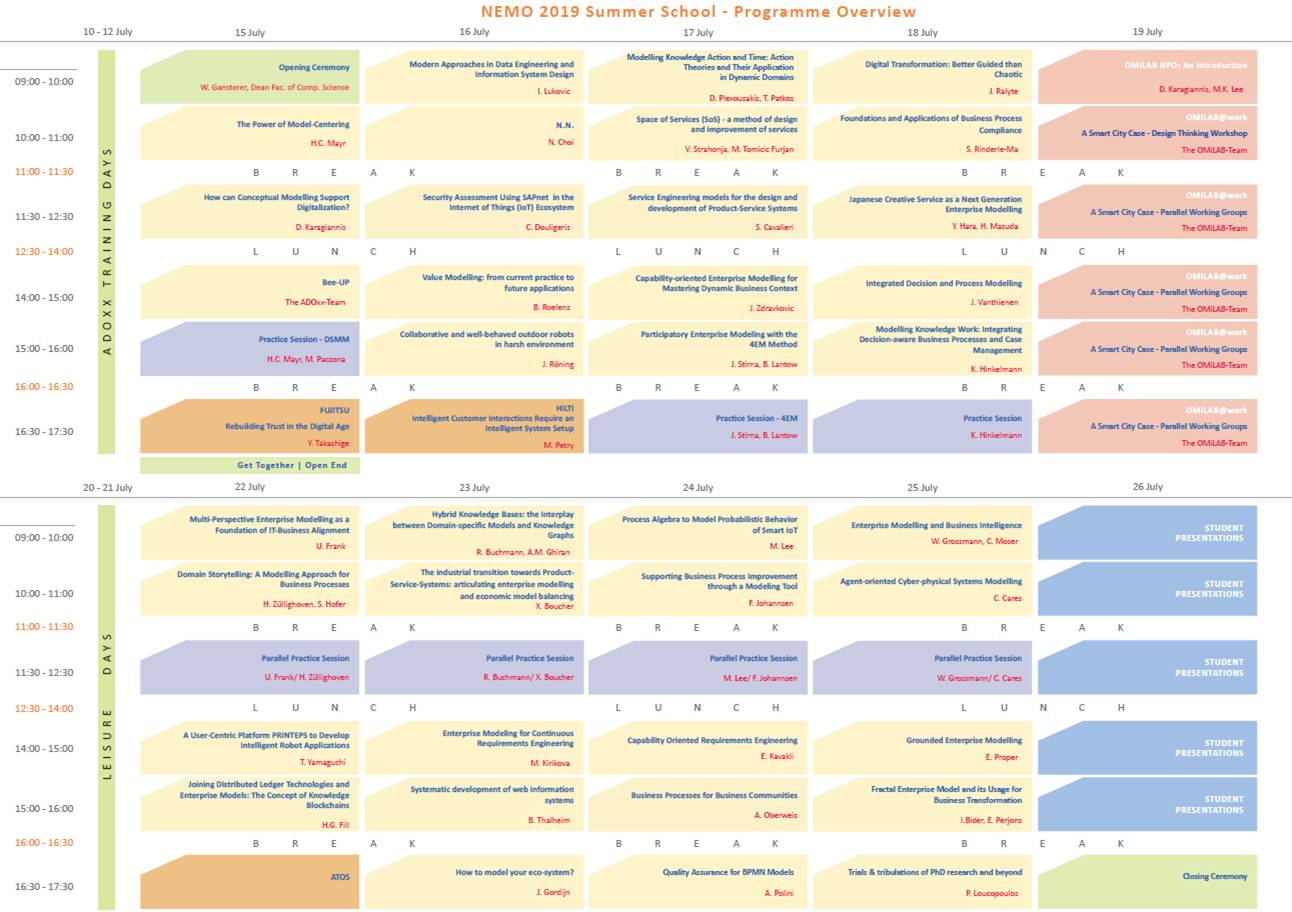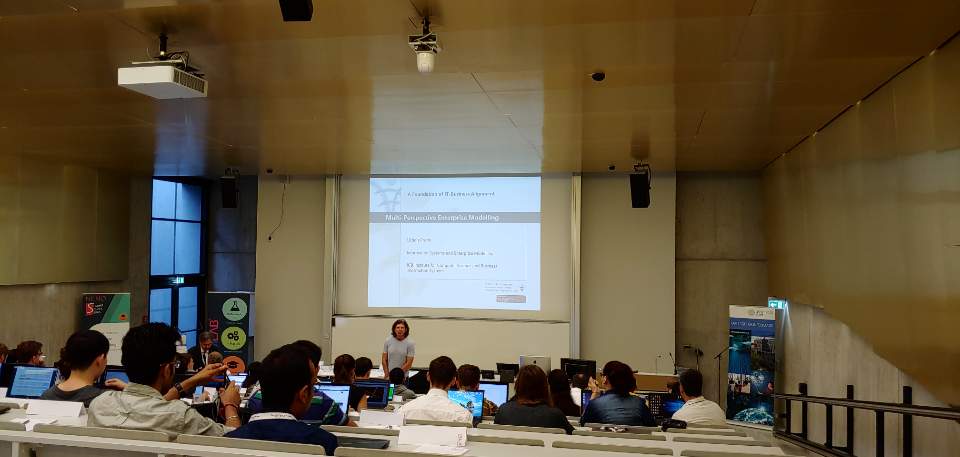
Multi-Perspective Enterprise Modelling as a Foundation of IT-Business Alignment
Prof. Dr. Ulrich Frank, Alexander Bock, M.Sc. B.Sc, Duisburg-Essen University, Germany
Abstract
While it is undisputed that today's enterprises depend crucially on IT, many companies still struggle with exploiting the potential of IT to a full extent. On the one hand, that requires adapting IT infrastructures of ever increasing complexity to changing needs of the business, on the other hand, it recommends rethinking organizational structures and business processes to create new opportunities for the efficient use of IT. In the long run, the digital transformation may even require to reinvent the entire business model, which will usually imply a major restructuring of a company and its IT. IT-Business alignment can be mastered only, if a professional perspective on the business is combined with elaborate knowledge of the IT. The field of enterprise modelling is addressing this demand by integrating models of the business, such as goal models or business process models, with models of the IT, such as models of the IT infrastructure, object models etc. In his talk, Ulrich Frank, will give an overview of “Multi-Perspective Enterprise Modelling” (MEMO) to demonstrate how enterprise models support various kinds of business and IT related analyses that support both, IT managers and line managers and that thereby serve as a pivotal instrument to foster IT business alignment. For this purpose, he will give an overview of the domain-specific modelling languages that are part of MEMO, the language architecture and the language specification. The presentation will be supplemented by a tutorial on the use of MEMO4ADO, a tool that facilitates the construction of integrated enterprise models using the MEMO languages.

Domain Storytelling: A Modelling Approach for Business Processes
Prof. Dr. Heinz Züllighoven, Dr. Stefan Hofer, Workplace Solutions GmbH, Germany
Abstract
Understanding and describing requirements is probably the greatest challenge in a software development project. Only well-known and well-understood requirements can be successfully implemented. Even if we select a standard software to support our customers, the right requirements are significant. Requirements engineering is a learning and communication process for us. A precondition for this is feedback – whether in direct dialogue or by informative requirements documents. The domain experts need to validate the requirements documentation so that it is possible to detect mistakes and misunderstandings. With Domain Storytelling we use the principles of learning a new human language. Let experts tell their domain stories. While listening, we record the domain stories using a pictographic language. The domain experts can see immediately whether we have understood their story correctly. After very few stories, we will be able to talk about people, tasks, tools, work items, and events in a domain. Domain Storytelling is an example-based approach for modelling selected business processes and their IT support. The models are easy to understand for people in different departments, business organizations and their specialists alike. The method aims at common understanding and communication about the processes which are modelled. Characteristics of Domain Storytelling are: (a) cooperative business processes are modelled as “cooperation pictures” based on selected scenarios, (b) simple pictograms make models easy to comprehend, (c) processes are structured along the lines of “who makes what with whom”. The initial lecture will present the conceptual basis of Domain Storytelling, putting business process modelling into the context of application-oriented software development. It will characterize software development as a learning and communication process with a strong need for feedback among all parties concerned. The basic principles and concepts of Domain Storytelling will be explained. The tutorial will provide hands-on experience.

A User-Centric Platform PRINTEPS to Develop Intelligent Robot Applications
Prof. Dr. Takahira Yamaguchi, Keio University, Japan
Abstract
We are developing PRactical INTEligent aPplicationS (PRINTEPS), which is a user-centric platform to develop intelligent robot applications by combining five types of intelligent software modules such as knowledge-based reasoning, speech dialog, image sensing, motion management and machine learning. PRINTEPS supports end users to design and develop intelligent robot applications easily. This lecture introduces the architecture and applications of PRINTEPS for robot cafe and teaching assistant robot.
Joining Distributed Ledger Technologies and Enterprise Models: The Concept of Knowledge Blockchains
Prof. Dr. Hans-Georg Fill, Fribourg University, Switzerland
Abstract
Distributed ledger technologies have recently gained attention due to their successful application to blockchain and smart contract platforms such as Bitcoin and Ethereum. In this talk we will explore how these technologies can contribute to the domain of enterprise modeling by presenting the concept of Knowledge Blockchains. With this concept, enterprise models can be linked with blockchains for the immutable, decentralized and transparent storage of knowledge assets, the traceability of the origin of knowledge, and the application of so-called zero-knowledge proofs. The talk will provide a brief introduction into the underlying technologies and present extensions for the ADOxx metamodeling platform as a first proof-of-concept. Finally, potential use cases for the approach will be highlighted and an outlook will be given towards future research directions.
Conceptualisation of Modelling Methods: Challenges, Enablers and Scenarios
Dr. Dominik Bork, University of Vienna
Abstract
The benefits of domain-specific modelling methods – as a complement to general purpose and de-factor standard modelling methods like UML BPMN are doubtless. The process from an idea over the design up to the deployment of new modelling methods is referred to as the modelling method conceptualization. This presentation will provide a condensed walkthrough of all conceptualization phases by highlighting some of the most pressing challenges and discussing recent research results for overcoming these challenges. The second part of this talk will report on different modelling method conceptualization scenarios: the standard realization scenario, the standard extension scenario, and the domain-specific grass-roots scenario. The aim of this part of the talk is to show possibilities of modelling method conceptualization in academia and industry.

